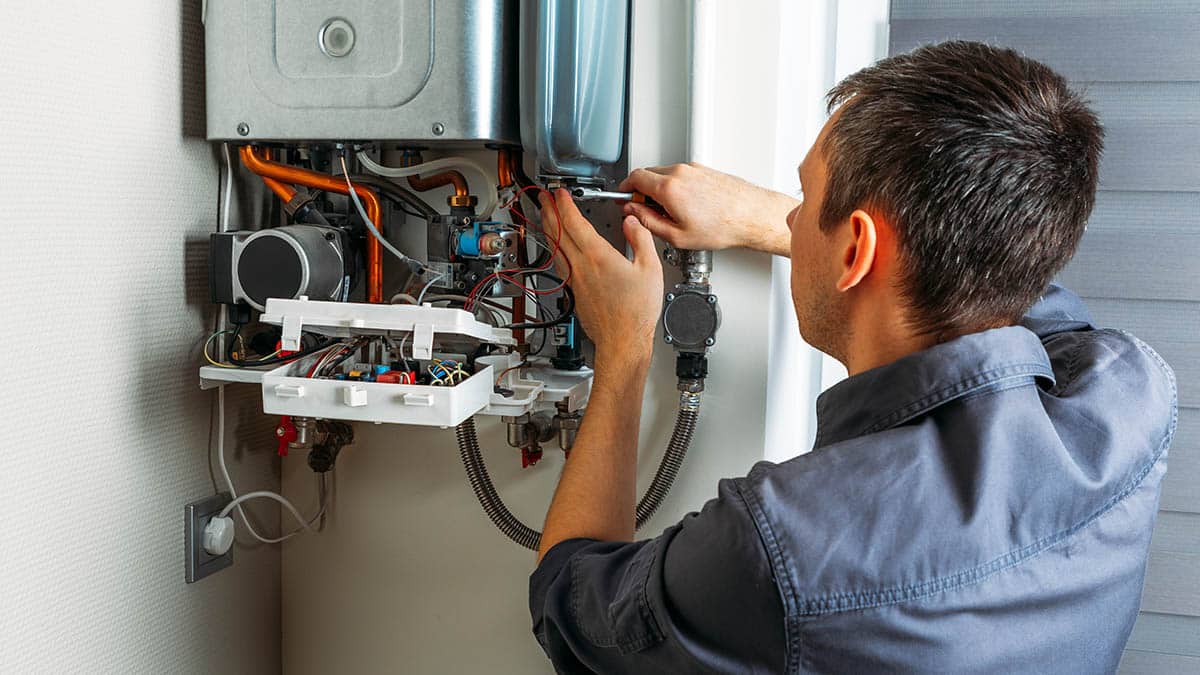
Boiler vs Furnace: What Will Work Best for Your Home
Buying and installing a new home heating system can feel like a daunting task, especially when you don’t understand the options available to you. While our experts are always happy to answer your questions and give recommendations based on your needs, expectations and budget, it’s still a good idea to get to know the basics, such as the difference between a boiler and a furnace.
From there, we can work together to make sure your heating system selection is ideal for keeping your home warm for many years to come.
A Boiler and a Furnace Are Not the Same Thing
Both a boiler and a furnace are indeed types of heating systems for homes and commercial buildings. That said, even though some people do use the terms synonymously, they don’t have much else in common. Get to know the differences between them so you’ll be confident you’re making the right choice to heat your home.
What is a Boiler?
A boiler heats your home using hot water. There are many ways that it can deliver this heat to each room in your home. These include baseboard systems, ceramic or cast iron radiators, or radiant floor heating.
A boiler uses natural gas, electricity or oil as a fuel source for its heat. It uses that heat to warm a tank of water. The boiler will then send hot water or steam – depending on the system – through the pipes of the home, circulating throughout the baseboards, radiators or flooring to deliver that heat. To keep an appropriate pressure within the boiler system, hot gasses are vented outside the home. By the time the water finishes the system’s loop, it has cooled down and is recirculated into the boiler for reheating once more.
What is a Furnace?
Just as boilers use water or steam to heat your home, a furnace uses warm air. This is why furnaces are sometimes known as “forced air heating”. A furnace works on a thermostat, which is set to the desired temperature for the home. When the temperature falls below the set level, it triggers action from the furnace to warm the home.
In the case of a gas furnace, the electric ignition or the pilot light ignites the propane or natural gas within the furnace’s burner.
In the case of an electric furnace, a heating element begins warming.
Air from return registers in the home’s ductwork is drawn in through a heat exchanger, which warms the air from the burner (gas) or heating element (electric). From there, the process is the same in either type of furnace. A blower forces the warmed air throughout a system of ductwork, which delivers it through the house through the vents in the ducts. The process continues until the home’s temperature reaches the desired level, then the furnace stops heating.
Should You Install a Boiler or Furnace in Your Home?
Most homeowners will use the existing heating system to decide whether they want to install a boiler or furnace when the time comes for a new unit. As one system requires pipes and the other needs ductwork, the switching from one system to the other would take more than merely replacing the unit. However, if you are looking to make an investment into your home’s heating system and want to choose the ideal system for you and your family as well as the house and its value, take a moment to understand the benefits and drawbacks of each kind of system.
Consider the following factors to help you decide.
Efficiency/Heating Cost
Overall, a boiler will typically provide more efficient home heating than a furnace because water is a more efficient heat conductor than air.
System Maintenance
Boilers should be serviced twice per year, usually before the Summer of Winter heating season begins. Throughout the rest of the year, a well-maintained boiler shouldn’t need much maintenance. Furnaces should also be serviced twice per year, around those same times. These systems require air filters to remove debris. The furnace filter should be replaced every 1 to 3 months, depending on factors such as dust levels, pets in the house, and others.
Air Quality
Boilers are typically the preferred home heating system for allergy sufferers as they do not disturb the air. Due to the nature of boiler-based home heating, the air naturally has a higher humidity level. Furnaces can blow dust, dander, pet hair and other airborne allergens through the home. Furnaces typically lead to dryer air in the home, which can promote dry skin and respiratory discomforts. A humidifier can be installed into the furnace to overcome excessive dryness.
Noise Level
Boilers silently provide steady warmth to your home all season long. Furnaces make sound while they are running. Depending on the unit, some can be quite noisy.
Ready to Learn More? Already Decided?
Whether you’re ready for a new home heating system or would like to learn more about the benefits and limitations of a boiler or furnace for your home, we’ll be happy to answer your questions and provide you with expert assistance. Call McLoughlin Plumbing, Heating and Cooling at 610-624-8037. We’ll send an expert home heating professional at your next available convenience.

